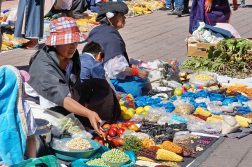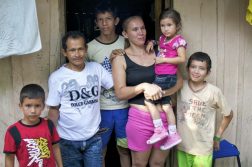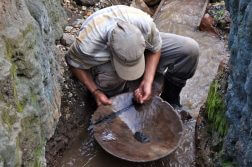Rural villages such as the ones located in the Andean mountains of Peru present an interesting dilemma. For an external observer, there is usually little doubt that people from these villages should be considered as indigenous: they are the descendants of pre-colonial societies, speak an ancestral native language, and have worldviews, social norms, economic systems, and cultural practices that are different from the ones of the rest of the country’s population. When asked if they consider themselves as indigenous, however, most of them would probably argue that they are not. They self-identify as “campesinos,” members of agrarian communities but not indigenous by any means. Why is such distinction important? In a region with a history of exclusion and discrimination against indigenous groups, the aversion to the term “indigenous” may be largely a reaction to …
Click below to read the full post:
“I’m not Indigenous!” Identity and Exclusion in Indigenous Development
#rodolfotello #socialsafeguards



